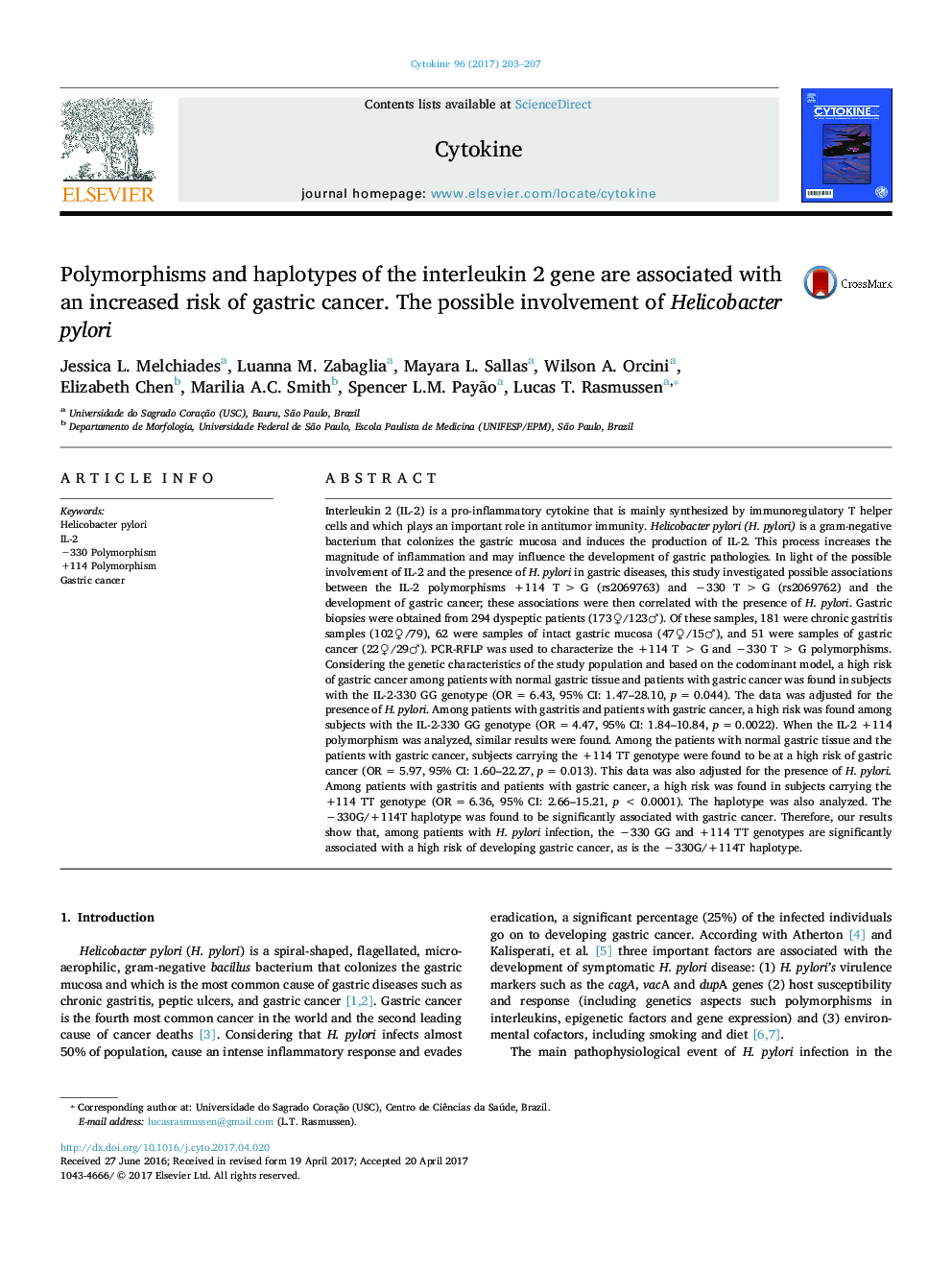| Article ID | Journal | Published Year | Pages | File Type |
|---|---|---|---|---|
| 5586994 | Cytokine | 2017 | 5 Pages |
Abstract
Interleukin 2 (IL-2) is a pro-inflammatory cytokine that is mainly synthesized by immunoregulatory T helper cells and which plays an important role in antitumor immunity. Helicobacter pylori (H. pylori) is a gram-negative bacterium that colonizes the gastric mucosa and induces the production of IL-2. This process increases the magnitude of inflammation and may influence the development of gastric pathologies. In light of the possible involvement of IL-2 and the presence of H. pylori in gastric diseases, this study investigated possible associations between the IL-2 polymorphisms +114 T > G (rs2069763) and â330 T > G (rs2069762) and the development of gastric cancer; these associations were then correlated with the presence of H. pylori. Gastric biopsies were obtained from 294 dyspeptic patients (173â/123â). Of these samples, 181 were chronic gastritis samples (102â/79), 62 were samples of intact gastric mucosa (47â/15â), and 51 were samples of gastric cancer (22â/29â). PCR-RFLP was used to characterize the +114 T > G and â330 T > G polymorphisms. Considering the genetic characteristics of the study population and based on the codominant model, a high risk of gastric cancer among patients with normal gastric tissue and patients with gastric cancer was found in subjects with the IL-2-330 GG genotype (OR = 6.43, 95% CI: 1.47-28.10, p = 0.044). The data was adjusted for the presence of H. pylori. Among patients with gastritis and patients with gastric cancer, a high risk was found among subjects with the IL-2-330 GG genotype (OR = 4.47, 95% CI: 1.84-10.84, p = 0.0022). When the IL-2 +114 polymorphism was analyzed, similar results were found. Among the patients with normal gastric tissue and the patients with gastric cancer, subjects carrying the +114 TT genotype were found to be at a high risk of gastric cancer (OR = 5.97, 95% CI: 1.60-22.27, p = 0.013). This data was also adjusted for the presence of H. pylori. Among patients with gastritis and patients with gastric cancer, a high risk was found in subjects carrying the +114 TT genotype (OR = 6.36, 95% CI: 2.66-15.21, p < 0.0001). The haplotype was also analyzed. The â330G/+114T haplotype was found to be significantly associated with gastric cancer. Therefore, our results show that, among patients with H. pylori infection, the â330 GG and +114 TT genotypes are significantly associated with a high risk of developing gastric cancer, as is the â330G/+114T haplotype.
Related Topics
Life Sciences
Biochemistry, Genetics and Molecular Biology
Endocrinology
Authors
Jessica L. Melchiades, Luanna M. Zabaglia, Mayara L. Sallas, Wilson A. Orcini, Elizabeth Chen, Marilia A.C. Smith, Spencer L.M. Payão, Lucas T. Rasmussen,
